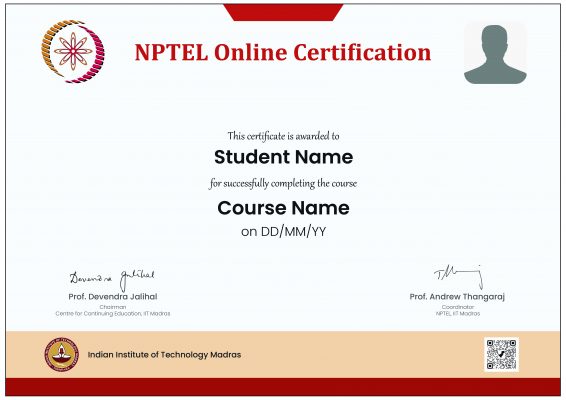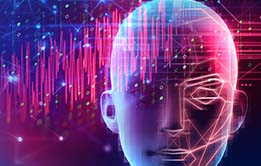Description
Deep Learning has received a lot of attention over the past few years and has been employed successfully by companies like Google, Microsoft, IBM, Facebook, Twitter etc. to solve a wide range of problems in Computer Vision and Natural Language Processing. In this course we will learn about the building blocks used in these Deep Learning based solutions. Specifically, we will learn about feedforward neural networks, convolutional neural networks, recurrent neural networks and attention mechanisms. We will also look at various optimization algorithms such as Gradient Descent, Nesterov Accelerated Gradient Descent, Adam, AdaGrad and RMSProp which are used for training such deep neural networks. At the end of this course students would have knowledge of deep architectures used for solving various Vision and NLP tasks
INTENDED AUDIENCE
Any Interested Learners
PREREQUISITES
Working knowledge of Linear Algebra, Probability Theory. It would be beneficial if the participants have done a course on Machine Learning.
ABOUT THE INSTRUCTOR

Prof. Sudarshan Iyengar, Associate Professor at the CSE at IIT Ropar has a Ph.D. from the Indian Institute of Science (IISc). An exemplary teacher who has delivered over 350 popular science talks to students of high school and advanced graduate programmes. Dr. Sudarshan has offered more than 100 hours of online lectures with novel teaching methodologies that have reached lakhs of Students. His research interests include Data Sciences, Social Computing, Social Networks, Collective Intelligence, Crowdsourced Technologies and Secure Computation

Prof. Sanatan Sukhija is currently working as an Assistant Professor in the Department of Computer Science and Engineering at Mahindra University, Hyderabad. He earned his Doctorate from the Department of Computer Science and Engineering at Indian Institute of Technology Ropar. Prior to joining Mahindra University, his varied career includes stints at several industries and academic institutions, including, Amazon, Intel, Siemens, HCL, Punjab Engineering College, and the NorthCap University. He works on specific machine learning problems, in particular, transfer learning and domain adaptation. This research area focuses on learning in those domains where the amount of labeled training data is scarce or absent. His other research deals with learning robust deep models for industry/healthcare related problems. His work has led to multiple publications at several top-tier venues (AI Journal, AAAI, IJCAI, ECML-PKDD, IJCNN, WCCI etc.)
Certification Process
1. Join the course
Learners may pay the applicable fees and enrol to a course on offer in the portal and get access to all of its contents including assignments. Validity of enrolment, which includes access to the videos and other learning material and attempting the assignments, will be mentioned on the course. Learner has to complete the assignments and get the minimum required marks to be eligible for the certification exam within this period.
COURSE ENROLMENT FEE: The Fee for Enrolment is Rs. 3000 + GST
2. Watch Videos+Submit Assignments
After enrolling, learners can watch lectures and learn and follow it up with attempting/answering the assignments given.
3. Get qualified to register for exams
A learner can earn a certificate in the self paced course only by appearing for the online remote proctored exam and to register for this, the learner should get minimum required marks in the assignments as given below:
CRITERIA TO GET A CERTIFICATE
Assignment score = Score more than 50% in at least 9/12 assignments.
Exam score = 50% of the proctored certification exam score out of 100
Only the e-certificate will be made available. Hard copies will not be dispatched.”
4. Register for exams
The certification exam is conducted online with remote proctoring. Once a learner has become eligible to register for the certification exam, they can choose a slot convenient to them from what is available and pay the exam fee. Schedule of available slot dates/timings for these remote-proctored online examinations will be published and made available to the learners.
EXAM FEE: The remote proctoring exam is optional for a fee of Rs.1500 + GST. An additional fee of Rs.1500 will apply for a non-standard time slot.
5. Results and Certification
After the exam, based on the certification criteria of the course, results will be declared and learners will be notified of the same. A link to download the e-certificate will be shared with learners who pass the certification exam.
CERTIFICATE TEMPLATE

Course Details
Week 1 : (Partial) History of Deep Learning, Deep Learning Success Stories, McCulloch Pitts Neuron, Thresholding Logic, Perceptrons, Perceptron Learning Algorithm
Week 2 : Multilayer Perceptrons (MLPs), Representation Power of MLPs, Sigmoid Neurons, Gradient Descent, Feedforward Neural Networks, Representation Power of Feedforward Neural Networks
Week 3 : FeedForward Neural Networks, Backpropagation
Week 4 : Gradient Descent (GD), Momentum Based GD, Nesterov Accelerated GD, Stochastic GD, AdaGrad, RMSProp, Adam, Eigenvalues and eigenvectors, Eigenvalue Decomposition, Basis
Week 5 : Principal Component Analysis and its interpretations, Singular Value Decomposition
Week 6 : Autoencoders and relation to PCA, Regularization in autoencoders, Denoising autoencoders, Sparse autoencoders, Contractive autoencoders
Week 7 : Regularization: Bias Variance Tradeoff, L2 regularization, Early stopping, Dataset augmentation, Parameter sharing and tying, Injecting noise at input, Ensemble methods, Dropout
Week 8 : Greedy Layerwise Pre-training, Better activation functions, Better weight initialization methods, Batch Normalization
Week 9 : Learning Vectorial Representations Of Words
Week 10: Convolutional Neural Networks, LeNet, AlexNet, ZF-Net, VGGNet, GoogLeNet, ResNet, Visualizing Convolutional Neural Networks, Guided Backpropagation, Deep Dream, Deep Art, Fooling Convolutional Neural Networks
Week 11: Recurrent Neural Networks, Backpropagation through time (BPTT), Vanishing and Exploding Gradients, Truncated BPTT, GRU, LSTMs
Week 12: Encoder Decoder Models, Attention Mechanism, Attention over images
Books and References:
Deep Learning, An MIT Press book, Ian Goodfellow and Yoshua Bengio and Aaron Courville http://www.deeplearningbook.org





Reviews
There are no reviews yet.